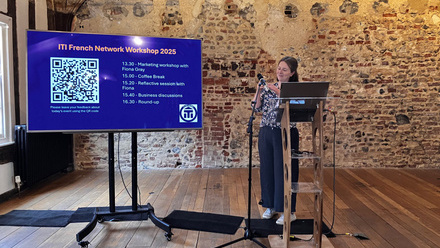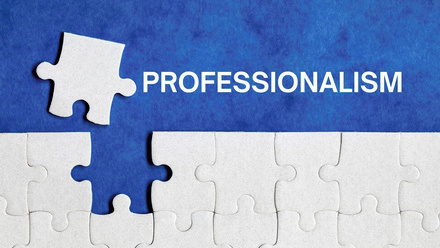Three benefits of regular CPD
Louise McNeela AITI explains how she benefits from regular CPD
Looking back at my CPD log, over the last year I’ve completed courses in my specialist field, done memoQ training, learnt about winning new clients on LinkedIn, kept my language fresh by watching series in my source languages, and much more.
But why is CPD important? Wouldn't that time be better spent on billable work? I 'd say definitely not, and here I share what I consider to be the top three benefits (in no particular order) of consistently doing CPD.
Networking
I first heard about the ITI Western Regional Group (WRG) at a coworking event in Bristol when I’d already been translating for over a year. Then, at a WRG social, a fellow member suggested I join the ITI Medical and Pharmaceutical Network (MedNet). I took their advice and later enrolled in the MedNet’s mentoring programme as a mentee. My mentor recommended joining ITI as an Associate member.
This chain of events opened up a whole world of CPD opportunities. I’ve attended many in-person CPD sessions since then, the latest being the MedNet’s workshop on Restorative Dentistry in London. I’m also a member of the French Network and enjoy reading the Au Courant newsletter, where I first heard about revision clubs. I joined one recently and have found that discussing what we’ve all been working on and exchanging ideas on anything from office equipment to which style guides we use is actually just as useful as working together on a translation.
Developing expertise while banishing imposter syndrome
I do CPD in my specialist field (medical and pharma) to develop my knowledge and build my confidence. In the MedNet mentoring programme I took part in, I benefited from the support of a very knowledgeable and experienced mentor. My mentor assigned me some challenging translations that we discussed afterwards, helping me improve not only my translation skills but also my research techniques. The most valuable piece of advice she gave was not to be afraid of asking questions (or answering those of others) on the MedNet forum. I’ve always found colleagues there to be extremely supportive and the archives are an invaluable resource.
I’m currently doing a HarvardX course on human anatomy, using a colouring book alongside it to consolidate what I’ve covered in the course through kinaesthetic learning. This kind of CPD broadens my knowledge, giving me the confidence to tackle tricky medical reports while keeping imposter syndrome at bay.
Career progression
I’ve recently become very aware of the need to future-proof my business. After turning down all MTPE projects for almost two years, I decided it was time to be more open to this kind of work. Two MTPE webinars I found in the ITI webinar library gave me an insight into the MTPE process and an overview of the relevant ISO standard, along with all-important pricing tips. I’ve since successfully completed a number of lucrative MTPE projects safe in the knowledge that I’m delivering good quality work.
One key takeaway from a recent course I attended (‘Five steps to find and market to direct clients’, by Tess Whitty) is that it’s vital to niche down. Given my specialism, I’m considering focusing on one particular disease area while continuing to hone my creative translation skills, e.g. for marketing texts in the medical field, something machines will never do as well as humans. That’s why I’ve also been brushing up on my writing skills, with courses such as Joachim Lépine’s ‘What Makes English… English?’, which opened my eyes to source language interference and the importance of using idioms.
Above are just three benefits of consistently doing CPD, but I believe there are many more. What I’ve learnt is that CPD is a journey and that one course leads to another. Planning CPD is planning for the future.






